Isabgol in Tamil: Complete Guide to Meaning, Benefits, and Uses – 2025
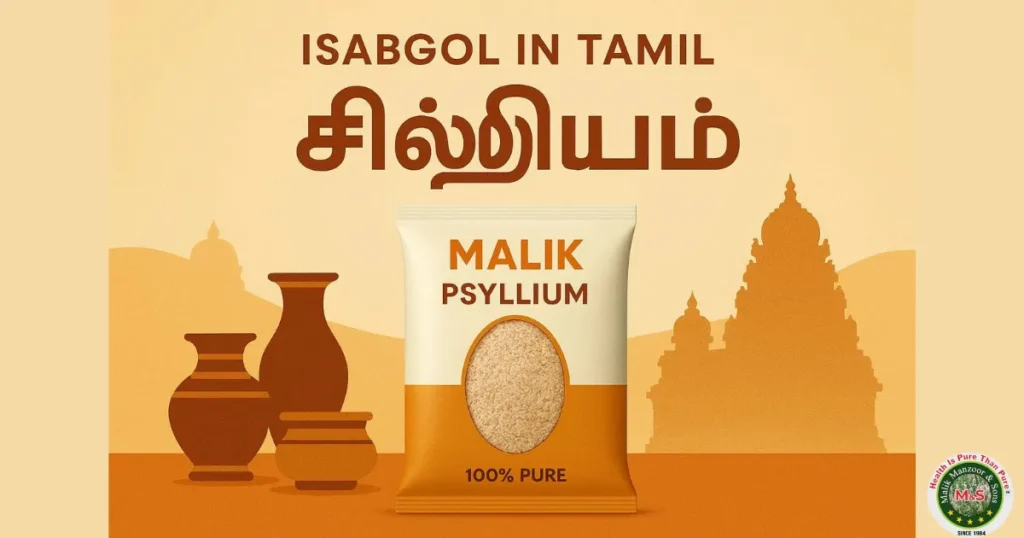
When Tamil-speaking customers visit my processing facility in Pakistan and ask about isabgol, I’m always reminded of how this natural remedy transcends borders and languages. Whether you’re searching for isabgol in Tamil, trying to understand its meaning in your native language, or looking for traditional remedies, you’re part of a centuries-old wellness tradition that spans South Asia.
As someone who’s cultivated psyllium for over two decades, I’ve witnessed how isabgol – known in Tamil regions as சில்லியம் “Cilliyam” or or இசபகோல் “Isabgol vithai” – has become a trusted household remedy across Tamil Nadu and among Tamil-speaking communities worldwide. Today, let me share everything you need to know about this remarkable fiber supplement in the context of Tamil traditional medicine and modern usage.
What is Isabgol? Understanding the Basics
Before we explore isabgol in Tamil specifically, let me explain what this supplement actually is. Isabgol is the Hindi/Urdu name for the husk derived from Plantago ovata seeds – a small plant we cultivate extensively in Pakistan’s semi-arid regions.
The name “isabgol” comes from Persian, where “asp” means horse and “ghol” means ear, referring to the seed’s shape. In English, it’s called psyllium husk or simply psyllium. The scientific name, Plantago ovata, remains constant across all languages and regions.
What makes isabgol special is its outer seed coating – the husk or “chilka” – which contains approximately 70% soluble fiber. When this husk contacts water, it absorbs 10-14 times its weight and forms a beneficial gel. This unique property is what gives isabgol its therapeutic value, regardless of what language you call it in.
Isabgol in Tamil: The Correct Translation and Meaning
Now, let’s address what you came here for: what is isabgol in Tamil?
Isabgol in Tamil is called சில்லியம் “Cilliyam” or இசபகோல் “Isabgol”, which is a direct transliteration. Some Tamil speakers also refer to it as “Psyllium vithai” (psyllium seeds) or describe it using its botanical properties as “Plantago ovata vithai”.
In Tamil Siddha medicine and traditional Ayurvedic practices followed in Tamil Nadu, you might hear it referenced as:
- Isabgol umi (isabgol husk).
- Psyllium umi (psyllium husk).
- Cilliyam vithai (psyllium seeds).
Here’s a quick reference table for clarity:
| Language | Name | Script/Pronunciation | How It’s Known |
| English | Psyllium Husk | – | Fiber supplement |
| Hindi/Urdu | Isabgol/Ispaghol | इसबगोल / اسپغول | Traditional remedy |
| Tamil | Cilliyam/Isabgol | சில்லியம் / இசபகோல் | Natural medicine |
| Scientific | Plantago ovata | – | Botanical name |
When shopping for Isabgol in Tamil Nadu, you can ask for any of these names at medical stores or Ayurvedic shops, and they’ll know exactly what you need. Most commonly, people ask for “isabgol” and it’s universally understood.
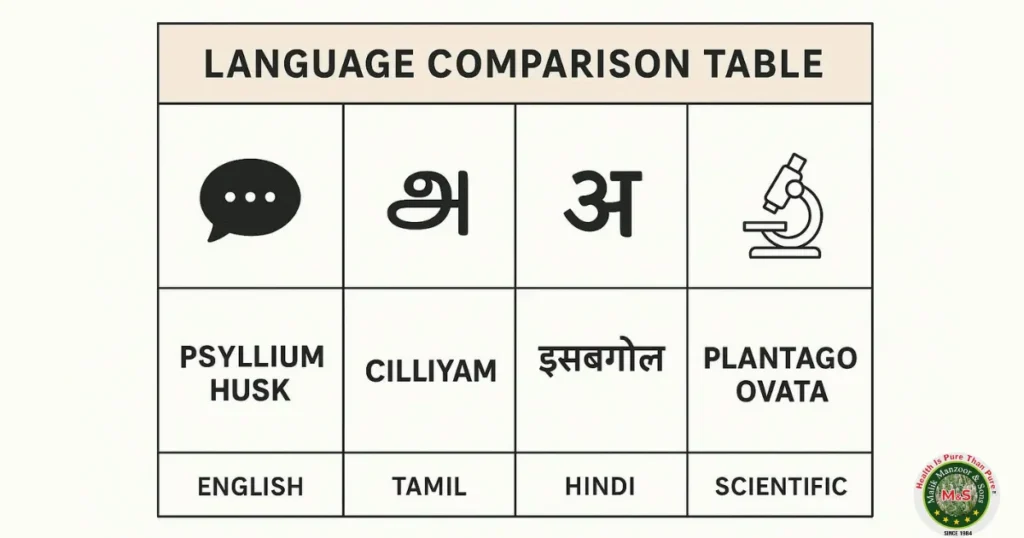
Isabgol’s Place in Tamil Traditional Medicine.
Understanding isabgol in Tamil context means appreciating its role in traditional healing systems practiced in Tamil Nadu. While isabgol originated from Persian and North Indian medicine, it has been integrated into Tamil Siddha medicine practices over centuries.
In Siddha medicine, practitioners classify isabgol as having cooling properties. It’s traditionally used to balance excess heat in the body, particularly in the digestive system. Tamil Siddha texts recognize their ability to cleanse the intestines gently without harsh forcing.
Traditional Tamil households use isabgol for various purposes:
- Constipation relief – The primary and most common use.
- Reducing stomach heat – Especially important in a hot climate.
- Weight management – Creating natural fullness.
- Cholesterol reduction – Supporting heart health.
- Digestive cleansing – Gentle internal purification.
Many Tamil families, especially those practicing traditional medicine, keep isabgol in their homes alongside other herbal remedies like Triphala and Ajwain. It’s considered a safe, gentle remedy suitable for regular use.
Health Benefits of Isabgol for Tamil-Speaking Communities.
Let me share the scientifically-validated benefits of isabgol in Tamil health contexts:

Constipation Relief (மலச்சிக்கல் நிவாரணம்).
This is the primary use across Tamil Nadu. The soluble fiber in isabgol forms a gel that softens stool and promotes easy bowel movements. Unlike harsh chemical laxatives, isabgol works naturally with your body’s rhythms – something Tamil traditional medicine has always emphasized.
I’ve heard from countless Tamil customers who struggled with chronic constipation for years, only to find relief within days of starting isabgol. The key is consistency and adequate water intake.
Weight Loss Support (எடை இழப்பு ஆதரவு).
Tamil wellness practitioners have long recognized that isabgol creates lasting fullness. When taken before meals with water, it expands in your stomach, helping you eat smaller portions naturally. This aligns with Tamil dietary wisdom about eating in moderation.
For weight management, the traditional method is taking isabgol 20-30 minutes before main meals. This simple practice, combined with mindful eating, can support healthy weight loss without extreme dieting.
Heart Health and Cholesterol Control (இதய ஆரோக்கியம்).
Research confirms what traditional medicine intuited – isabgol lowers bad cholesterol (LDL). For Tamil communities with higher rates of heart disease, this natural approach to cholesterol management is particularly valuable.
Multiple clinical studies show that taking 5-10 grams of isabgol daily can reduce LDL cholesterol by 5-10%. This is significant for heart disease prevention, especially important in South Asian populations.
Diabetes Control (சர்க்கரை நோய் கட்டுப்பாடு).
Isabgol slows glucose absorption, preventing dangerous blood sugar spikes. For Tamil Nadu, which has a high diabetes prevalence, this benefit is especially significant. Many Tamil doctors now recommend isabgol as part of diabetes management protocols.
The gel formed by isabgol in your digestive system creates a barrier that slows sugar absorption, leading to more stable blood glucose levels throughout the day.
Overall Digestive Health (செரிமான ஆரோக்கியம்).
Beyond constipation, isabgol supports overall gut health. It feeds beneficial bacteria in your intestines, creating a healthier digestive environment – a concept well-understood in Tamil Siddha medicine.
This prebiotic effect means isabgol doesn’t just provide fiber – it actively supports the good bacteria in your gut that are essential for immunity, digestion, and overall wellness.
How to Use Isabgol: Tamil Traditional Methods.
Let me share traditional Tamil ways of consuming isabgol, along with modern recommendations:
Basic Preparation:
- Quantity: Start with 1 teaspoon – approximately 5 grams.
- Liquid: Mix with at least 1 glass of warm water, milk, or cow’s milk.
- Stirring: Mix thoroughly for 10-15 seconds until completely dissolved.
- Drink immediately: Before it forms a thick gel.
- Extra water: Follow with another glass of water.
This basic method works for most purposes, but Tamil households have developed specific variations for different health goals.
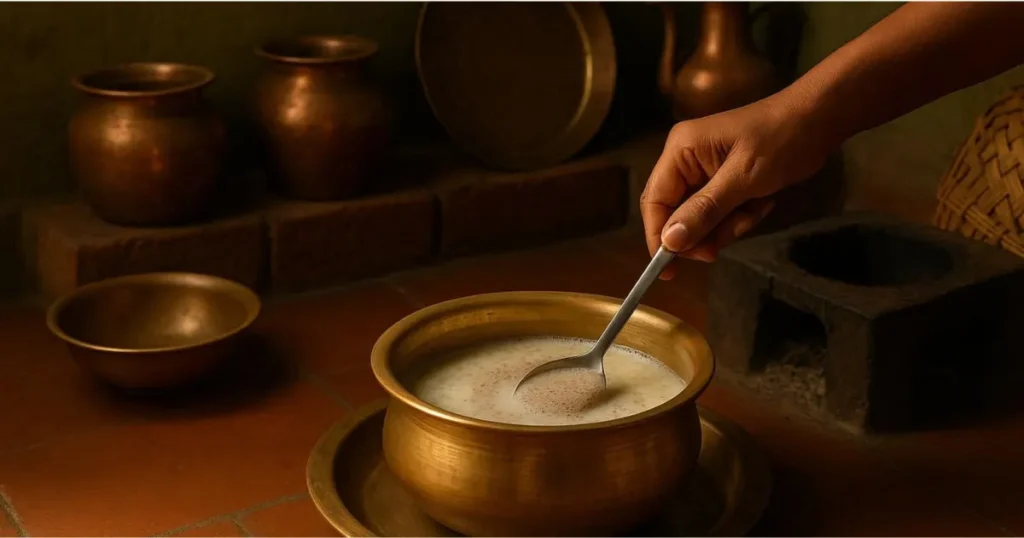
Popular Tamil Home Remedies with Isabgol in Tamil:
Isabgol with Milk (இசபகோல் மற்றும் பால்):
Mix 1 teaspoon of isabgol in warm milk with a little sugar or honey. Drink before bedtime for morning relief from constipation. This is the most common Tamil household remedy – gentle, effective, and suitable for all ages.
Isabgol with Buttermilk (இசபகோல் மற்றும் மோர்):
Especially popular in Tamil households during summer. Mix isabgol with cold buttermilk and cumin powder for cooling digestive support. This combination is refreshing and helps with stomach heat common in the hot Tamil climate.
Isabgol with Curd or Yogurt (இசபகோல் மற்றும் தயிர்):
Mix with fresh yogurt and a pinch of salt. This combination is excellent for stomach heat and provides probiotics along with fiber – a powerful digestive duo.
Isabgol Lemon Water (இசபகோல் எலுமிச்சை நீர்):
For weight loss, mix isabgol with warm water, lemon juice, and honey. Take 20-30 minutes before meals. This is a modern adaptation that’s become popular in urban Tamil areas.
Isabgol with Warm Water at Night:
The simplest method – just isabgol with warm water before bed. Many Tamil families swear by this nightly ritual for maintaining regular digestion.
Timing Recommendations for Different Goals:
- For constipation: Before sleeping at night.
- For weight loss: 20-30 minutes before meals.
- For diabetes: With meals to slow sugar absorption.
- For cholesterol: With or after meals.
- For general digestive health: Evening after dinner.

Dosage Guidelines for Tamil Users.
Understanding proper dosage of isabgol in Tamil contexts is important for safety and effectiveness:
Adults ((பெரியவர்கள்)):
- Starting dose: 1/2 to 1 teaspoon once daily.
- Maintenance dose: 1-2 teaspoons daily.
- Maximum: 3 teaspoons daily, divided into doses.
- Always with at least 8 ounces of liquid.
Children (குழந்தைகள்:
- Ages 6-12: Half the adult dose.
- Under 6: Only with pediatrician approval.
- Always supervise to ensure adequate water intake.
- Mix with milk or juice for better acceptance.
Elderly (வயதானவர்கள்):
Start with smaller doses and ensure proper hydration throughout the day. Older individuals may be more prone to dehydration, so extra attention to fluid intake is important.
Important Rule: Always take isabgol with at least 8 ounces of liquid and drink another glass within 30 minutes. This is non-negotiable for safety and effectiveness.
Side Effects and Precautions of Isabgol in Tamil (பக்க விளைவுகள்).
While isabgol is generally safe, Tamil speakers should understand these precautions:
Common Initial Effects:
- Stomach gas: Usually resolves within one week as your body adjusts.
- Bloating: Temporary as your digestive system adapts to increased fiber.
- Mild cramping: Usually indicates insufficient water intake.
These side effects are normal and typically disappear within 3-7 days. Starting with a small dose and increasing gradually minimizes these effects.
Who Should Avoid Isabgol:
- Those with intestinal blockage or bowel obstruction.
- People with difficulty swallowing (dysphagia).
- Those with a known allergy to isabgol or psyllium.
- Anyone with undiagnosed abdominal pain.
Medication Interactions:
This is crucial for Tamil users to understand. Take isabgol at least 2-4 hours apart from:
- Diabetes medicines (can enhance blood sugar lowering effects).
- Heart medications (fiber may reduce absorption).
- Thyroid medicines (timing is critical for effectiveness).
- Any other regular medications.
Pregnancy and Breastfeeding:
Generally safe during pregnancy for constipation relief, which is common among pregnant Tamil women. However, always consult your obstetrician before starting any supplement during pregnancy. Many Tamil gynecologists specifically recommend isabgol for pregnancy-related constipation.
Critical Safety Note:
Never consume isabgol powder dry. Always mix it with adequate liquid. Dry isabgol can swell in your throat and create a choking hazard. This is especially important to communicate to elderly family members and children.
Isabgol vs Other Fiber Supplements.
Tamil consumers often ask how isabgol compares to other fiber options available in local markets:
Isabgol vs Triphala:
Both are natural and popular in Tamil households, but they serve different purposes. Isabgol is specifically for fiber and bulk-forming. Triphala is a broader Ayurvedic formula with multiple herbs targeting overall digestive balance. You can use both together if desired.
Isabgol vs Whole Psyllium Seeds:
Isabgol husk is more effective than whole seeds because the husk contains concentrated fiber. The seeds include the inner portion, which provides less benefit per gram. Always choose husk over seeds for therapeutic use.
Isabgol vs Wheat Bran:
Isabgol is gentler on the digestive system and suitable for gluten-sensitive individuals. Wheat bran contains gluten and can be harsh for sensitive stomachs. For Tamil families with celiac disease or gluten sensitivity, isabgol is the better choice.
Isabgol vs Synthetic Fiber Supplements:
Isabgol is natural and provides additional prebiotic benefits that synthetic options like methylcellulose lack. Traditional Tamil medicine strongly prefers natural remedies, and isabgol aligns with this philosophy.
For Tamil households, isabgol offers the best combination of effectiveness, gentleness, traditional acceptance, and scientific validation.
Understanding Quality: What Makes Good Isabgol.
Since you’re searching for isabgol in Tamil regions, understanding quality helps you make informed purchases:
Color:
Light beige to nearly white indicates purity. Dark brown or black specks suggest contamination with seed material or poor processing.
Texture:
Should be fine and uniform powder. Gritty or coarse texture indicates inferior processing.
Swelling Test:
Mix a teaspoon with water. Quality isabgol should absorb 10-14 times its weight and form a clear gel within seconds. Poor swelling indicates low quality or adulteration.
Smell:
Should be nearly odorless or slightly earthy. Musty or off odors indicate improper storage or contamination.
Purity:
Look for products labeled 95% or higher purity. Premium brands provide testing certificates.
Packaging:
Professional packaging with clear labels, batch numbers, and expiration dates indicates a reputable manufacturer.

At Malik Psyllium, we process and supply high-quality isabgol to distributors in leading global markets, ensuring consistent quality and purity.
What is isabgol called in Tamil?
(Cilliyam) or இசபகோல். It’s also referred to as சைலியம் விதை (Psyllium vithai). All these terms refer to the same natural fiber supplement derived from Plantago ovata seeds. You can use any of these names when shopping in Tamil Nadu.
How to use isabgol for constipation?
Mix 1 teaspoon of isabgol in warm milk or water before bedtime. Stir thoroughly and drink immediately, followed by another glass of water. This traditional Tamil method provides gentle overnight relief. Ensure you drink plenty of water throughout the day – at least 8-10 glasses – for best results. Most people see improvement within 12-72 hours.
What are the health benefits of isabgol?
Isabgol provides multiple benefits for Tamil users: relieves constipation, supports weight loss, lowers cholesterol, controls blood sugar, improves overall digestive health, and acts as a prebiotic for gut bacteria. It’s a natural, gentle fiber source used in both modern medicine and traditional Tamil healing systems like Siddha medicine.
Can I take isabgol daily?
Yes, isabgol is safe for daily long-term use when taken with adequate water. Start with a small dose (1/2 teaspoon) and gradually increase to 1-2 teaspoons daily. Maintain 2-4 hour spacing from medications. Many Tamil families use it daily as part of their wellness routine without any issues. I’ve personally used it for over 15 years.
Is isabgol good for weight loss?
Yes, isabgol supports weight management by creating lasting fullness. Take it 20-30 minutes before meals with plenty of water. It expands in your stomach, helping you eat less naturally. However, it works best when combined with healthy Tamil diet patterns (like traditional vegetarian meals) and regular exercise. It’s not magic – it’s a tool that supports your efforts.
What is the Tamil word for psyllium husk?
Psyllium husk in Tamil is சில்லியம் (Cilliyam), இசபகோல் உமி (Isabgol umi), or sometimes சைலியம் உமி. “Umi” means husk in Tamil. These terms are understood across Tamil Nadu in medical stores and Ayurvedic shops.
How to consume isabgol at night?
Mix 1 teaspoon of isabgol powder in warm milk or water about 30 minutes after dinner. Stir well and drink immediately before it thickens into gel. Follow with another glass of water. This traditional Tamil bedtime remedy promotes comfortable morning bowel movements. The evening timing allows it to work overnight while you sleep.
Is isabgol safe during pregnancy?
Generally, yes – isabgol is considered safe during pregnancy for constipation relief, which is very common among pregnant Tamil women due to hormonal changes and iron supplements. However, always consult your obstetrician before starting any supplement during pregnancy. Take with extra water and start with small doses. Many Tamil gynecologists specifically recommend it.
Conclusion: Embracing Isabgol for Tamil Wellness.
Understanding isabgol in Tamil – both the name (சில்லியம்/Cilliyam) and its applications – connects you to a time-tested natural remedy that has served South Asian communities for generations. Whether you’re managing constipation, supporting weight loss, or maintaining overall gut health, isabgol offers gentle, effective support that aligns with traditional Tamil wellness practices.
As someone who cultivates Plantago ovata in Pakistan’s ideal growing conditions, I’m proud that our isabgol reaches Tamil-speaking communities across India and worldwide. At Malik Psyllium, we maintain rigorous quality standards to ensure the isabgol you purchase – whether called Cilliyam in Tamil or psyllium in English – meets the highest purity and effectiveness benchmarks.
I encourage Tamil families to embrace this natural fiber supplement as part of your wellness routine, combining traditional wisdom with modern understanding for optimal health benefits. The key is consistency, adequate hydration, and choosing quality products from trusted sources.
Malik Shabbir
Featured Blogs
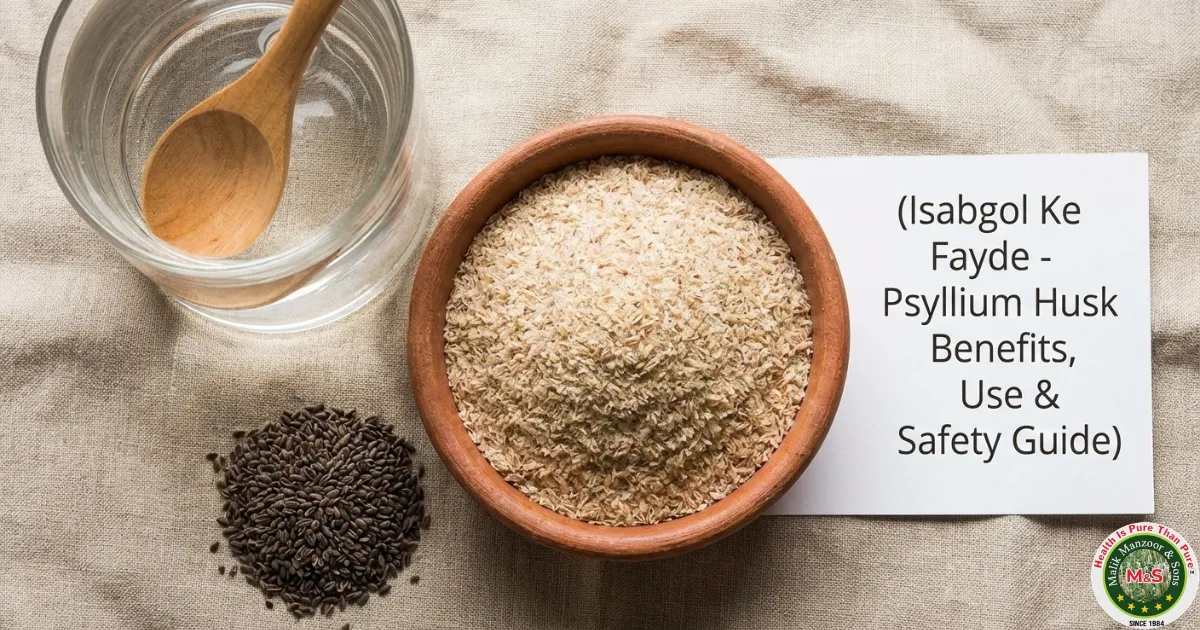
Isabgol Ke Fayde – Psyllium Husk Ke Poori Science-Based Rahnumayi – 2026
Isabgol ke fayde jaanna aaj ke daur mein zyada zaroori
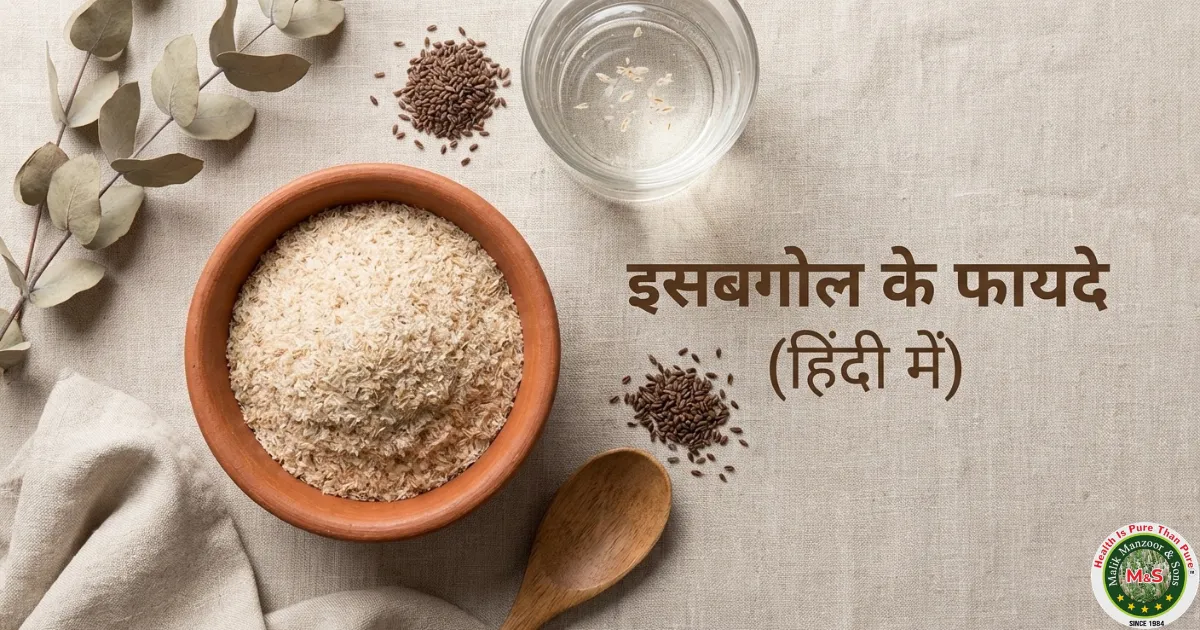
Isabgol Benefits in Hindi | Psyllium Husk Ke Fayde, Sahi Upyog Aur Savdhaniyan – 2026
Agar aap isabgol benefits in hindi mein samajhna chahte hain,
